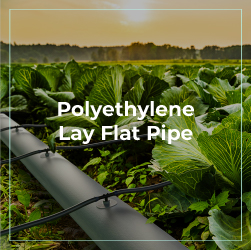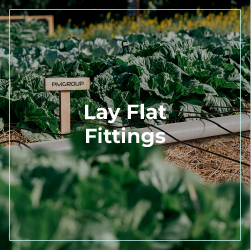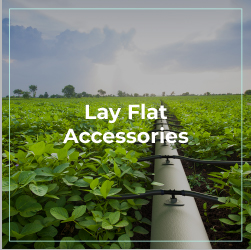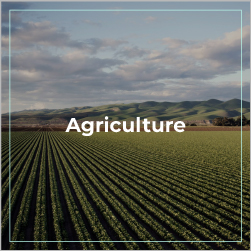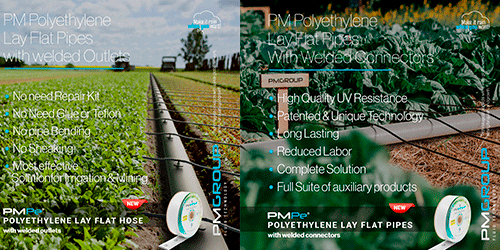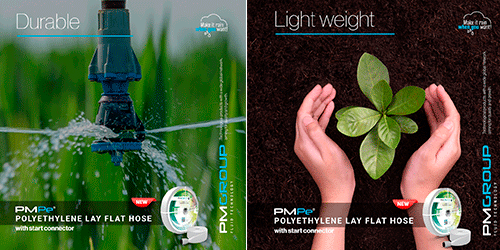Layflat hose have become a widely favored solution in modern agricultural practices, offering a host of benefits over traditional irrigation methods. As farming operations grow in scale and complexity, the need for efficient, reliable, and adaptable irrigation systems has never been more important.Hoses meet these demands by providing an effective alternative to conventional rigid pipes and other irrigation tools. In this article, we will delve deeper into the key advantages that layflat hoses offer for commercial farming.
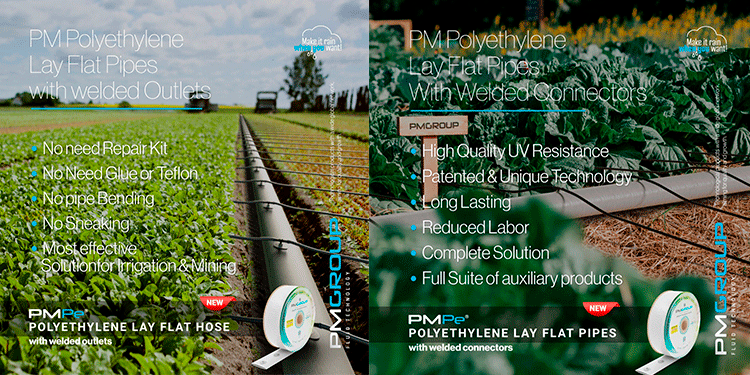
Layflat Hose Versatility and Flexibility in Irrigation Systems
One of the primary benefits of layflat hoses is their versatility in various irrigation applications. Layflat hoses are lightweight and easy to transport, which makes them ideal for both permanent and temporary irrigation systems. Farmers can use hoses to set up flood irrigation, drip irrigation, or sprinkler systems, depending on the crop and the field’s specific needs. The flexibility of these hoses allows for quick deployment and retraction, making them suitable for seasonal crops or rotating fields, where irrigation systems need to be moved or adjusted frequently.
Moreover, hoses are often used in flood irrigation systems, which are still prevalent in many commercial farming operations. Their design allows water to flow evenly across large areas, ensuring that crops receive consistent moisture levels. The ease with which they can be adapted to different farming practices makes hoses a go-to solution for irrigation in various agricultural settings, from row crops to orchards.
Cost-Effectiveness and Low Maintenance
For commercial farmers, cost efficiency is always a priority. Layflat hoses are significantly more affordable than more permanent irrigation systems, such as underground pipes or large-scale sprinkler systems. They are made from durable, lightweight materials such as PVC or polyurethane, which keep production and transport costs low. These hoses are particularly valuable for farmers with large areas to irrigate, as they can be quickly and easily deployed at a fraction of the cost of traditional irrigation infrastructure.
Additionally, layflat hoses require less maintenance compared to rigid irrigation systems. Traditional metal pipes and sprinkler systems often need regular cleaning, repairs, and replacements, all of which can be costly and time-consuming. In contrast, hoses are easy to roll up and store when not in use, reducing the wear and tear associated with permanent installations. The minimal maintenance required further contributes to their cost-effectiveness, making them a popular choice among budget-conscious farmers.
Layflat Hose Durability and Resistance to Harsh Conditions
While hoses are lightweight and flexible, they are also surprisingly durable and able to withstand harsh environmental conditions. Made from high-quality, weather-resistant materials, these hoses are designed to endure the rigors of outdoor use in both hot and cold climates. They are resistant to UV rays, which means they won’t degrade under the sun’s harsh rays, a common issue with many other types of irrigation hoses.
Moreover, layflat hoses are resistant to kinks and abrasions, which can damage conventional hoses and pipes over time. This durability ensures a longer lifespan, reducing the need for frequent replacements.Hoses are also capable of handling varying water pressures, making them suitable for a wide range of applications, from low-pressure drip systems to higher-pressure flood irrigation. Whether dealing with rocky terrain, heavy rainfall, or extreme temperatures, these hoses are designed to maintain consistent performance in challenging conditions.
Ease of Use and Storage
Another significant advantage of layflat hoses is their ease of use. Unlike traditional rigid irrigation pipes, which can be cumbersome to handle and install, layflat hoses are lightweight and easy to roll out across fields. Farmers can quickly connect multiple hoses to cover larger areas or use a single hose for smaller plots. The flexibility of hoses makes them easy to maneuver around obstacles, such as trees or buildings, without requiring additional tools or equipment.
When the irrigation cycle is complete, hoses can be just as easily rolled up and stored. This makes them highly practical for farmers who need to rotate or adjust their irrigation systems on a regular basis. The compact storage size of the rolled-up hoses means they take up minimal space and can be stored in sheds or barns, reducing the clutter and space requirements often associated with other irrigation equipment.
In summary, hoses offer a range of benefits that make them an ideal choice for commercial farming operations. Their versatility allows them to be used in various irrigation setups, while their cost-effectiveness and low maintenance make them a budget-friendly solution. The durability of layflat hoses ensures that they can withstand harsh environmental conditions, providing long-lasting performance. Finally, their ease of use and compact storage options make them a practical solution for farmers who need flexibility and convenience in managing their irrigation systems. With these advantages, layflat hoses continue to be a valuable tool in the efficient and sustainable management of commercial farms.

